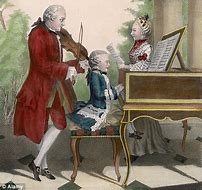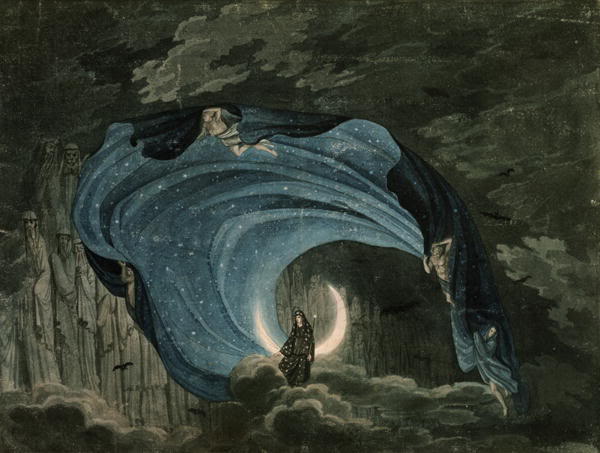 "Mozart's Family" painting hanging in the Mozart Geburtshaus in Salzburg
"Mozart's Family" painting hanging in the Mozart Geburtshaus in Salzburg
Mozart lived in a time when musicians usually depended on having a patron or sponsor who provided work and a stable income for them. Mostly, the patron dictated what kind of music the composer would produce. Composers also needed some kind of post such as choir master of the local church or conductor of the court orchestra in the palace of the local duke in order to survive. They wrote music for the particular group or organization, and tried to thrive and be happy within the confines of their situation.
This type of arrangement was too restrictive for young Mozart. His genius could not be confined to particular parameters for very long. As a young man, he set out on his own to Vienna to work as a freelance composer --- a novel idea at that time. He wanted to write the music he wanted to write when and for the voices or instruments he wanted. There in Vienna he composed the great bulk of his music. He sometimes even hired a hall and the musicians himself to premiere his new works. He actually acquired quite a following and became famous in his own lifetime. Too bad he lived beyond his means and racked up debts which contributed to his early death.
I feel like I can understand his music better as I absorbed the setting and culture of where he lived and worked. Mozart lived during a time when Baroque ornamentation was literally everywhere --- in the highly decorated painting and statues in the cathedrals and palaces, to the flowery embroidery on the clothing, and yes, particularly in the music. Heavy embellishment had been THE fashion in the Baroque Period (1685-1750). During the Classical Period (1750-1820), fashion began to dictate that the lines be lighter and clearer, but there were still a lot of notes and performers with egos who clung to the Baroque styles. Mozart, being a transitional composer, left no room for the performers to take liberties with his music. He wrote out just what flourishes he wanted and did not allow for other interpretations. In fact, some say that he even foreshadowed the Romantic Period for his later works had more depth of emotion and extended harmonies. He was a composer way ahead of his time.
The most amazing displays to me were the original design concepts for the scenery and costumes of Mozart's many operas. I wonder if any of those original sets were actually made. I could not imagine how the "magical" effects indicated in the sketches could be accomplished without modern technology. They blew my mind! Wow!

 RSS Feed
RSS Feed